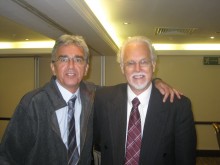 A resonating message I have picked from many people affected by serious substance use problems over the years is their desperate need for hope (that they can recover) and understanding (of how to recover). Here is a blog I originally posted in May 2013.
A resonating message I have picked from many people affected by serious substance use problems over the years is their desperate need for hope (that they can recover) and understanding (of how to recover). Here is a blog I originally posted in May 2013.
There is a dearth of readily accessible information on how to achieve recovery, information that is also relevant to the day-to-day struggles and obstacles that people face in trying to overcome addiction and related problems. Many people do not know anyone who has recovered from addiction. Many find the treatment system to be disempowering and lacking in hope.
Read More ➔




